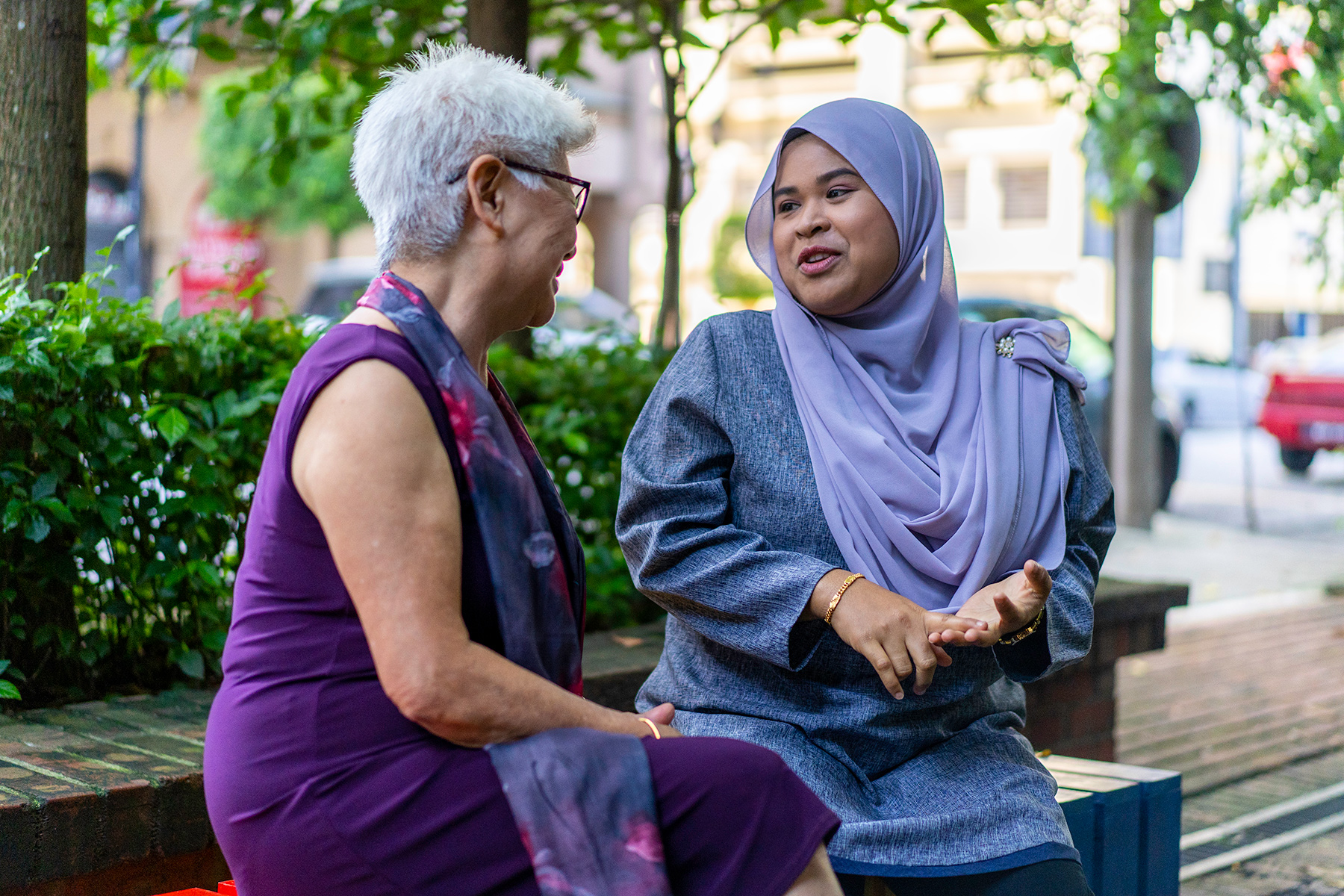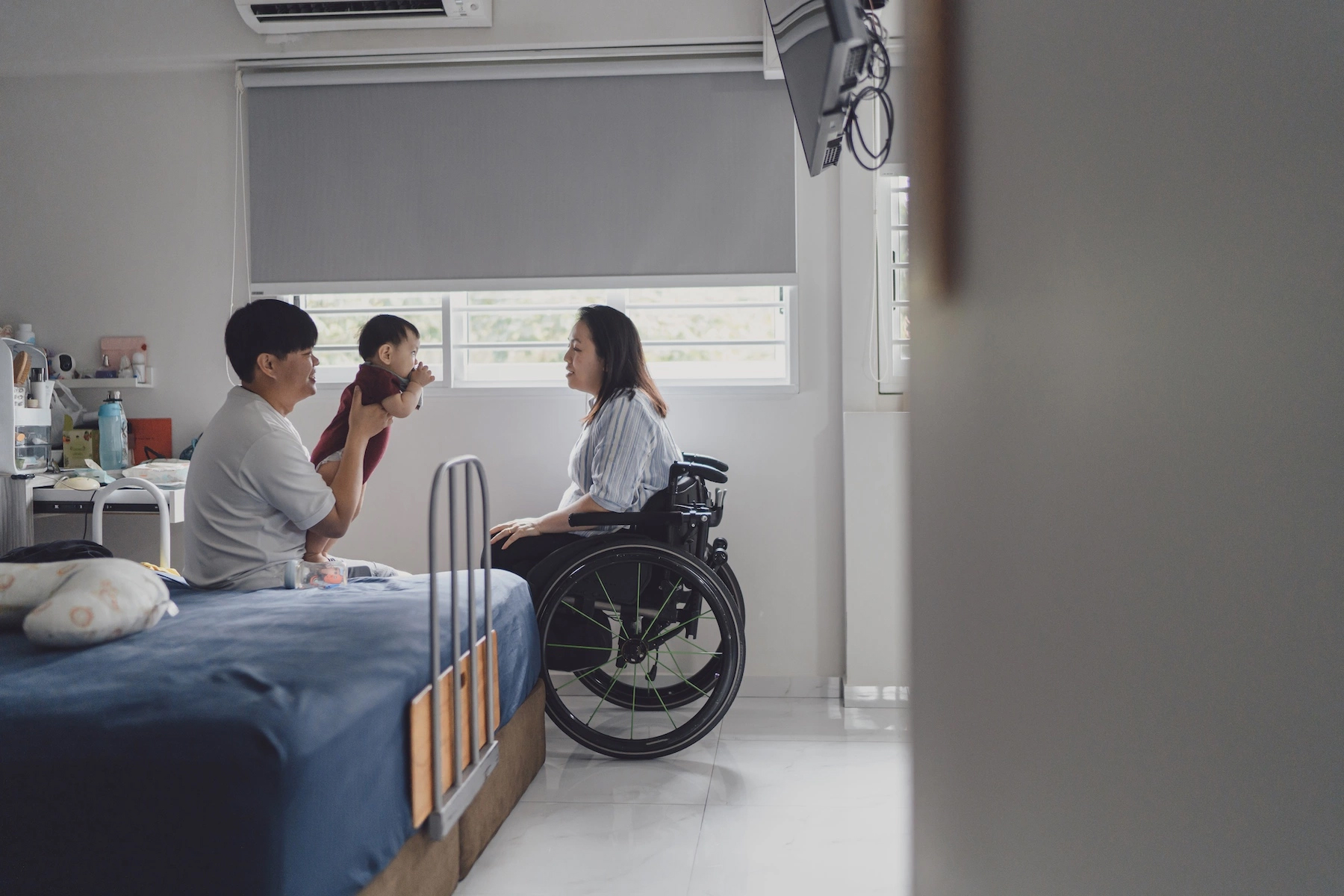Singapore is well-known for its high-quality and efficient healthcare system. However, it’s important to understand the specifics. The combination of public and private healthcare options may seem complex at first, but there are plenty of resources to help you navigate it. Get acquainted with health insurance in Singapore to protect your financial security while adjusting to your new surroundings.
Read on to find out more about the following:
- The healthcare system and health insurance in Singapore
- Who needs Singaporean health insurance?
- Public health insurance in Singapore
- How to apply for Singaporean public healthcare
- Private health insurance in Singapore
- Health insurance costs and reimbursements
- Coverage for unemployed or low-earners
- Useful resources
Allianz Care
Allianz Care is a world leader in providing international health insurance. Their various premiums provide professionally designed solutions for a variety of expat lifestyles. So, wherever your life takes you, make sure you have the right health protection for you and your family with Allianz Care.
The healthcare system and health insurance in Singapore
For expats moving to Singapore, the good news is that the country has one of the best healthcare systems in the world. State-of-the-art facilities and an excellent range of medical professionals help Singapore maintain one of the highest global life expectancies.

The Ministry of Health (MoH) is the government agency responsible for healthcare in Singapore. While medical care is universal and accessible to all, it is not free. Furthermore, only citizens and permanent residents can access the public healthcare and insurance system that funds the most costs.
Out-of-pocket costs vary depending on income, with those most vulnerable getting total costs covered. Expats with temporary residence permits and short-term visitors to Singapore can access medical services. Still, they will need private health insurance coverage if they don’t want to pay full costs for medical treatment.
Who needs Singaporean health insurance?
Singapore’s public health insurance is funded through compulsory payments or government subsidies. Singaporean nationals and permanent residents can also top up their public health insurance with a private plan to cover unmet costs. Around 68% of the population has some form of private health insurance.
Temporary residents and visitors to Singapore cannot access the state insurance program but can choose to take out private health insurance to cover healthcare costs.
What happens if I am not covered?
Singapore differs from other countries in that health insurance is optional for those not entitled to publicly-funded healthcare. This means that expats in Singapore without a permanent residence permit can choose between taking out private insurance and paying out-of-pocket healthcare costs.
Those living in Singapore on a work visa often have private health insurance through their employer as part of the benefits package. Others will have to make insurance arrangements on their own.
Public health insurance in Singapore
Who does public health insurance cover?
All citizens and permanent residents have statutory health insurance coverage. Temporary residents in Singapore on a visa scheme are not covered and will need to apply for a permanent residence permit if they are eligible.

Eligible working residents in Singapore pay into the Central Provident Fund (CPF) national social security scheme for healthcare entitlements. Dependent family members such as spouses, children, or parents are also covered, while older, unemployed, or low-income groups get coverage through separate schemes.
The public health insurance system in Singapore has several different elements. It primarily consists of three separate strands known as the 3 M’s:
- MediShield Life – compulsory health insurance that covers things such as major hospital bills, unexpected or emergency medical costs, and costly specialist treatment
- MediSave – a medical savings scheme where funding is set aside to be used at the patient’s discretion to cover general and day-to-day medical costs and to purchase health insurance
- MediFund – assistance scheme for citizens only, used for those unable to afford out-of-pocket healthcare costs in Singapore
In addition, there is a CareShield Life insurance scheme for citizens and permanent residents that covers long-term care costs later in life. Those born in 1980 or after are automatically enrolled from 30. Anyone born in 1979 or earlier can choose whether or not to enroll in the scheme.
What does public health insurance cover?
MediShield Life covers significant or unforeseen medical costs in Singapore, so there are limits to payouts for treatments or hospital stays. MediSave, on the other hand, is more flexible since it comes from the patient’s salary to be used at their discretion. This includes public or private in-patient, outpatient, and long-term care, to buy health insurance, or to pay medical costs for dependents. However, there are withdrawal limits, and some services require a copayment of up to 15% of total costs.
MediFund coverage is on a case-by-case basis, with an independent committee determining the level of assistance based on needs and financial circumstances.
Several other healthcare schemes and subsidies offer lump sums or pay 50–80% of treatment, medication, or equipment costs.
These various strands of public health insurance in Singapore cover most healthcare services. Out-of-pocket costs will depend on the level of care needed, provider fees (public facilities are government-subsidized), and how much you can cover through insurance, your MediSave account, and other available subsidies.
Coverage includes:
- Doctor or specialist consultations or treatments
- Hospital stays (MediShield Life covers basic rooms, but you can upgrade with MediSave)
- Emergency or essential treatment such as surgery, chemotherapy, or radiotherapy
- General dental and optical treatment
- Prescription drugs and long-term medication
- Hospital psychiatric care and some mental healthcare
- Maternity healthcare and some sexual healthcare (e.g., cancer screenings, abortion, and fertility treatment)
- Vaccinations
- Health screenings
- Some alternative medicine
- Long-term care (through CareShield Life)

Treatments and services not covered through the public insurance scheme in Singapore include:
- Cosmetic and elective procedures
- Cosmetic dental procedures
- Birth control
- Mental healthcare without a diagnosis or professional referral
How to apply for Singaporean public healthcare
Enrollment for MediShield Life and MediSave is automatic for citizens and permanent residents in Singapore, so you don’t need to worry about any application process. You should receive the details of your primary insurance plan and MediSave account. If you haven’t received anything, you can contact the CPF.
Suppose you are a Singaporean citizen and want to apply for a MediFund subsidy. In that case, you should contact the medical social worker or financial counselor at the MediFund-approved public healthcare institution where you receive treatment.
CareShield Life registration is automatic for all citizens and permanent residents born in 1980 or later. If you were born earlier than this, you can register through the CareShield Life website by setting up an account.
Private health insurance in Singapore
There are essentially three types of private health insurance in Singapore. These are:
- Integrated shield plans – private top-up insurance for MediShield Life holders which they can purchase using their MediSave funding
- National private insurance – local private sector providers that tend to focus solely on facilities in Singapore
- International private insurance – global providers that offer packages that can include coverage overseas
Packages for all three types tend to be very flexible, built around individual patient needs. They can cover a range of healthcare costs from primary and outpatient care to long-term costs associated with disability or terminal illness.
Who should get private health coverage?
Although visitors and temporary residents don’t have to purchase insurance, it is recommended to prevent high healthcare expenses. Those who aren’t citizens or permanent residents cannot access state-subsidized healthcare, meaning they can face heavy bills if they don’t have a private insurance plan.

It also makes sense for citizens and permanent residents to take out additional insurance to top up their MediShield Life plan. Approximately 68% of people living in Singapore have some form of private health insurance.
Cigna Global
Want access to the best private medical services in Singapore? Speak to the healthcare professionals at Cigna Global today and find a policy that’s right for you. Take advantage of their global network of doctors, specialists, therapists and more with coverage tailor-made for you and your family. If you’re starting a new life in Singapore, get peace of mind with Cigna Global.
Expats in Singapore on an S work visa usually have private health insurance paid for by their employer. Those on other work visas may also have work-based health insurance, but this is not mandatory for the employer.
What are the advantages of private healthcare?
The advantages of taking out private health insurance in Singapore include:
- Full coverage of healthcare costs: You can use private health insurance to top up your public coverage and cover unmet healthcare costs, which is cheaper than paying the treatment cost
- A full range of healthcare services: You can cover treatments not available through public services, for example, some therapy services
- Savings on expensive medical care: If you don’t have permanent residence or citizenship in Singapore, you will have to pay all medical costs if you don’t take out private insurance
- Higher-level services: For example, upgrading to private en-suite hospital rooms
- Quicker treatment: Access to private treatment where waiting times are generally shorter
- More choice over providers: Choose between public and private sector services, for example, private hospitals or doctors
- Having additional costs covered: Some private policies insure against risks such as loss of earnings due to illness
- Access to healthcare overseas: International plans include options to cover yourself in other countries
Disadvantages include higher monthly costs through increased premiums, which you may feel aren’t worth it if you don’t use medical services often. Premiums are also based on health profile factors such as age, lifestyle, and medical history. This means you will pay more if you are of pension age or have pre-existing conditions.
How does private health insurance work?
If you are a Singaporean citizen or permanent resident topping up your MediShield Life plan, your private and statutory insurance combine to form your Integrated Shield plan (IP). Your private insurer will be your main point of contact for both IP components. They will charge you premiums and usually settle any medical bills on your behalf up to the limits in your policy.
Expats taking out standalone private insurance will need to check their policy details for information on things such as premium payments, claims processes, contract renewals, and cancellations. In general, insurers will settle large bills on your behalf, although you may have to pay smaller fees upfront and then claim reimbursement.

The Monetary Authority of Singapore (MAS) regulates financial institutions in Singapore, including insurance companies and banks. You can check the MAS Financial Institutions Directory for details of fully regulated insurance companies.
How to choose a private healthcare provider
When looking for a private health insurance provider, be sure to weigh up the various different factors to find the best policy for you. Things you might want to ask can include:
- Can you tailor the policy to eliminate unnecessary elements and add on things important to you?
- What are the coverage limits? Are there caps to pay-outs, and can you use the insurance overseas?
- Can you lower premium costs by paying in advance or paying higher deductibles?
- How easy is it to sign up, make a claim, or cancel your policy? Can you do this online, and are there any cancellation clauses?
- What feedback does the company have from existing and past customers on rating websites?
- Are there any special offers or incentives? For example, some insurers partner with other companies, such as cinemas or restaurants, to offer discounts or freebies elsewhere.
- How does the company score for ethics and sustainability? You can check websites such as CSRHub and Corporate Knights.
Consult the MoH website to compare Integrated Shield plans. MoneySmart also allows you to compare both Integrated Shield and expat health insurance plans.
Private health insurance companies in Singapore
The following international health insurance providers offer private global healthcare plans for expats:
APRIL International
Looking for expat-friendly health insurance in Singapore? APRIL International has a long history of providing health coverage tailored to the unique needs of the expat lifestyle, ensuring peace of mind for you and your family. Whether you’re relocating to Singapore or simply staying short-term, APRIL International has the right policy for you.
Health insurance costs and reimbursements
Costs for fully private insurance plans for expats depend on coverage level, individual health factors, and the number of people on the plan. They range from around S$400 yearly for basic individual plans to S$10,000 or more for comprehensive family plans. Those on an S work visa will have coverage through their employer for a minimum of S$15,000 annual payout.
MediShield Life premiums depend on the covered person’s age and income. Policies starting or renewing after 1 January 2023 range from annual contributions of S$146.36 for those under 20 to S$2,074.21 for those age 90 and above.

MediSave contributions are tax-exempt and typically 8–10.5% of your gross salary or earnings, roughly split between the employee and employer. Self-employed workers have to pay the total amount themselves. You can use MediSave funds to pay your annual insurance premiums and other healthcare costs.
CareShield Life premiums vary according to age and income. They start at around S$200 per year at the age of 30. Integrated Shield premiums vary across the different plans available.
Coverage for unemployed or low-earners
Singapore has several different schemes and subsidies for low-earners and vulnerable groups, offering either cash payments or discounts of 50–80%. However, as with public healthcare in general, these are only available to citizens and public residents. There are currently no support schemes available for temporary residents or short-stay visitors in Singapore.
Two of the biggest assistance schemes only accessible to Singaporean citizens are:
- MediFund – for those with financial difficulties unable make insurance contributions or pay bills after all other subsidies have been applied; discretionary funding on a case-by-case basis
- Community Health Assist Scheme (CHAS) – income-based subsidies for medical and dental care with participating doctors and dentists
Useful resources
- Ministry of Health (MoH) – government department responsible for public healthcare in Singapore
- Central Provident Fund (CPF) – social security board in Singapore that manages public health insurance funds
- MoneySense – government financial services agency providing advice and information on a range of matters including health insurance
- CareShield Life – long-term care insurance scheme for citizens and permanent residents in Singapore





